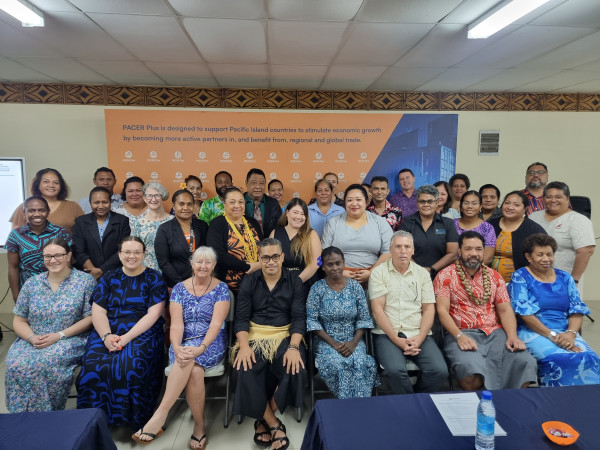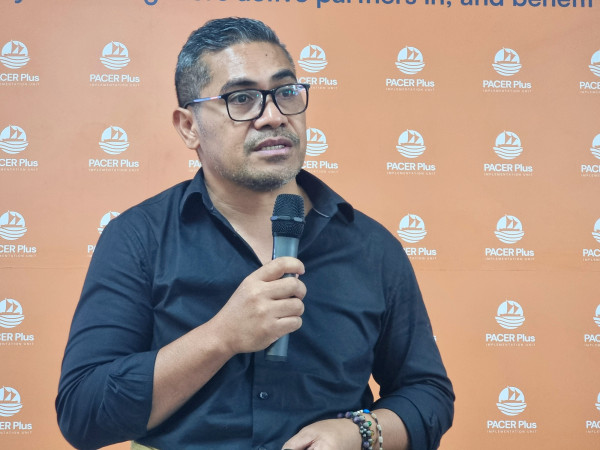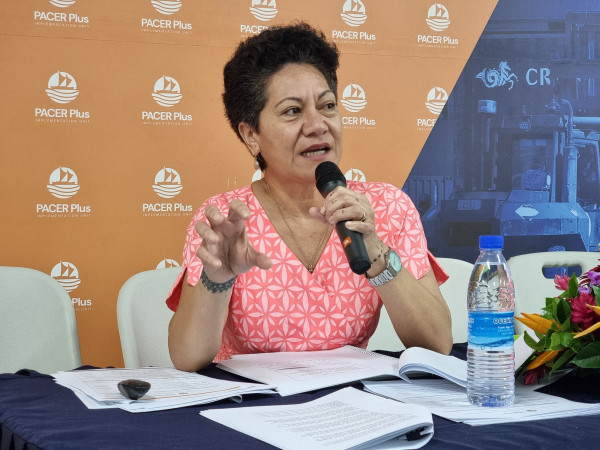Regional Workshop on Skills Development Underway in Samoa
9 July 2024
APIA, Samoa – The Regional Workshop on Skills Development commenced yesterday (8 July) in Apia, Samoa. This workshop is part of an ongoing commitment to ensure that the PACER Plus Agreement and Arrangement on Labour Mobility are responsive to the development needs of Parties, specifically in the area of skills development.
The PACER Plus Arrangement on Labour Mobility (ALM), a regional framework signed in 2017 by Australia, Cook Islands, Kiribati, Nauru, New Zealand, Niue, Samoa, Solomon Islands, Tonga, Tuvalu, and Vanuatu, aims to strengthen labour mobility cooperation. The framework operates alongside the Pacific Agreement on Closer Economic Relations (PACER) Plus agreement.
The 2022 Pacific Labour Mobility Annual Meeting (PLMAM) directed an independent evaluation of the ALM, which was then completed in December 2023. The Review highlighted the critical importance of skills development for sustainable economic development in the region and the need to strengthen the ALM to support skills development and the generation of net skills gains for Pacific labour sending countries.

The Regional Workshop on Skills Development had over 40 participants including qualifications officials, trade and labour mobility officials as well as private sector representatives from the 10 PACER Plus countries.
The Regional Workshop on Skills Development, taking place from 8-12 July 2024, is an initial forum that aims to inform the design of the new ALM and the broader PACER Plus work programme. It brings together over 40 participants including qualifications officials, trade and labour mobility officials as well as private sector representatives from the 10 PACER Plus countries, including Australia, Cook Islands, Kiribati, New Zealand, Niue, Samoa, Solomon Islands, Tonga, Tuvalu, and Vanuatu. Representatives from the Pacific Community's Educational Quality and Assessment Programme (SPC-EQAP), International Labour Organisation (ILO), and the International Organisation for Migration (IOM).

Dr. Opeti Pulotu, CEO of Tonga National Qualifications Authority Board speaks at the Regional Workshop on Skills Development.
Dr. Opeti Pulotu, CEO of Tonga National Qualifications Authority Board, emphasised the importance of aligning qualifications frameworks to meet both domestic and international skill needs: "By harmonising our qualifications frameworks with both national and international skill demands, we can ensure that our workforce is exceptionally equipped for local opportunities while remaining highly competitive on the global stage."
Ms. Lita Lui, CEO of the Samoa Chamber of Commerce and Industry, highlighted the importance of private sector engagement in the design and implementation of skills training: "Engaging the private sector in the design and implementation of the National Workforce Plan is vital to ensure that industry demand is met. When businesses are involved in shaping this Plan and its training programs, we can create a workforce that is ready to meet the current and future needs of the market."

Ms. Lita Lui, CEO of the Samoa Chamber of Commerce and Industry, highlighted the importance of private sector engagement in the design and implementation of skills training at the Regional Workshop of Skills Development.
Over the course of the five-day workshop, participants will engage in interactive sessions, group work, and discussions. Key topics that will be covered include the alignment of skills training systems to skills needs, both domestic and labour mobility demands, qualifications recognition, the role of labour mobility in skills development, and finding solutions for issues such as brain drain.
This workshop is a step towards ensuring that the PACER Plus ALM not only enhances labour mobility but also supports sustainable livelihoods and economic development across the Pacific region.
-ENDS-
To download high-resolution images, click here, here, and here.
Subscribe today
Don't miss our latest updates and news about PACER Plus